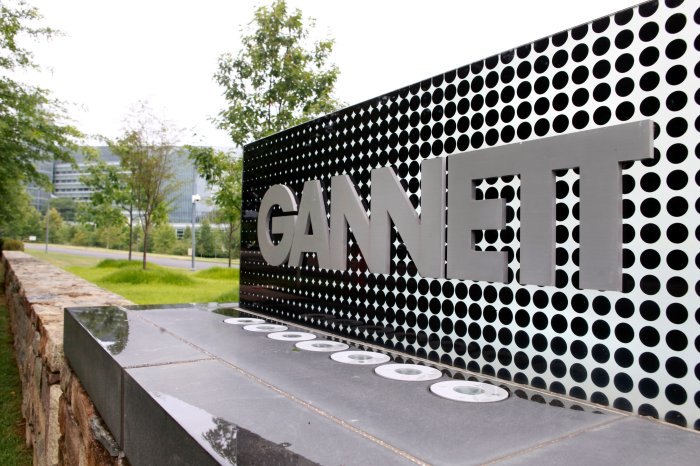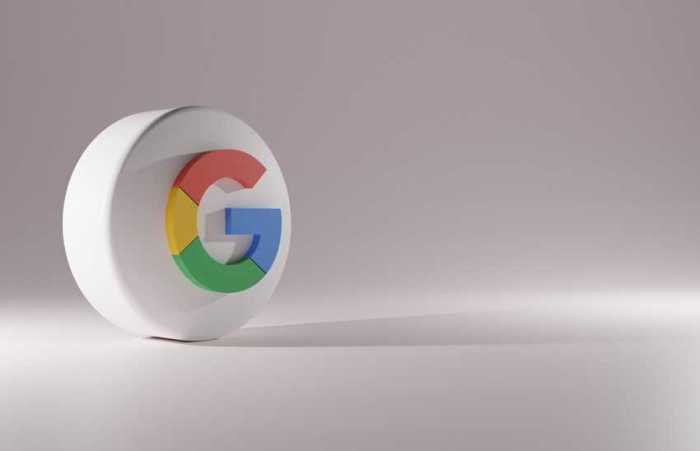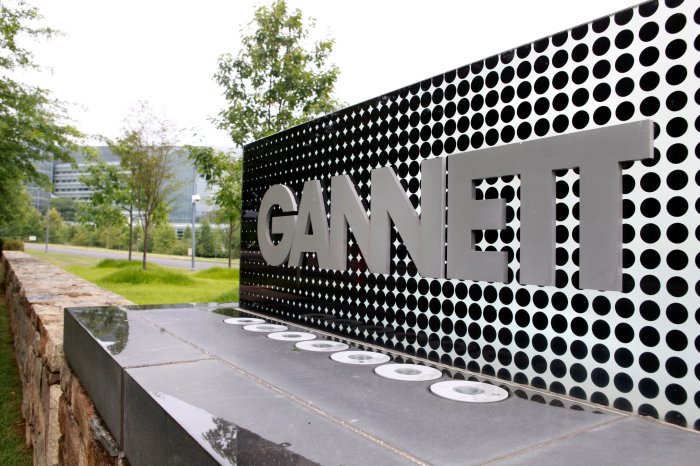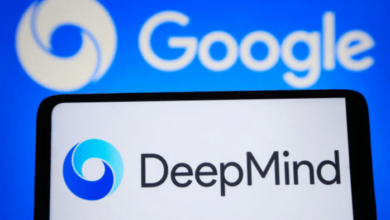
Gannett Sues Google, Accusing Digital Ad Monopoly
Gannett takes legal action against Google and Alphabet alleging digital advertising monopoly, a move that could shake up the media landscape. The lawsuit accuses Google of wielding its dominant position in digital advertising to stifle competition and harm publishers like Gannett.
The case highlights the growing tension between tech giants and media companies, who are increasingly reliant on digital advertising revenue.
Gannett, the parent company of USA Today and other major newspapers, claims Google has created a monopoly in the digital advertising market. The lawsuit alleges that Google’s control over advertising technology, including ad exchanges and ad networks, allows it to unfairly advantage itself while squeezing out competitors.
Gannett seeks to force Google to change its practices and potentially pay damages for its alleged anti-competitive behavior.
Gannett’s Legal Action
Gannett, a leading media company owning numerous local newspapers across the United States, has taken legal action against Google and its parent company, Alphabet, alleging that they have created and maintained a digital advertising monopoly. This lawsuit, filed in 2022, accuses Google of engaging in anti-competitive practices that have harmed Gannett and other publishers.
It’s a wild week for legal battles, with Gannett taking on Google and Alphabet over alleged digital advertising monopoly practices. It’s a reminder that even giants can face challenges, just like the recent news of genesis crypto lending filing for bankruptcy protection.
While the digital advertising landscape is shifting, the potential impact of these legal battles on the future of online content creation and distribution remains to be seen.
Allegations of Monopoly
Gannett’s lawsuit alleges that Google has engaged in a series of practices that have stifled competition in the digital advertising market. These practices include:
- Dominating the Ad Exchange:Google’s Ad Exchange platform, which connects publishers and advertisers, controls a significant portion of the digital advertising market. Gannett claims that Google’s dominance of this platform gives it an unfair advantage over other publishers.
- Preferential Treatment of Google Properties:Google prioritizes its own websites and services in its advertising algorithms, giving them an unfair advantage over competitors.
- Opacity and Lack of Transparency:Gannett argues that Google’s advertising practices are opaque and lack transparency, making it difficult for publishers to compete on a level playing field.
Legal Basis for the Lawsuit
Gannett’s lawsuit is based on several antitrust laws and regulations, including:
- Sherman Antitrust Act:This landmark legislation prohibits monopolies and other anti-competitive practices that harm consumers.
- Clayton Antitrust Act:This act prohibits mergers and acquisitions that would substantially lessen competition in the marketplace.
- Robinson-Patman Act:This act prohibits price discrimination that unfairly advantages certain buyers over others.
Timeline of Events
The lawsuit follows a series of events leading up to the legal action, including:
- Growing Concerns:For several years, publishers have expressed concerns about Google’s dominance in the digital advertising market and its impact on their ability to compete.
- Previous Attempts at Resolution:Gannett and other publishers have attempted to resolve these concerns through negotiations with Google, but these efforts have been unsuccessful.
- Filing of the Lawsuit:Faced with ongoing concerns and a lack of progress in negotiations, Gannett decided to file a lawsuit against Google and Alphabet.
The Digital Advertising Landscape

The digital advertising landscape is a complex and ever-evolving ecosystem, with Google holding a dominant position. Google’s dominance has sparked concerns about potential antitrust violations and its impact on the market’s competitive dynamics. This section delves into the current state of the digital advertising market, examining Google’s revenue streams and the potential ramifications of Gannett’s lawsuit.
Google’s Dominance in Digital Advertising
Google’s dominance in digital advertising is undeniable. It holds a substantial share of the market, generating significant revenue through various advertising channels. The company’s vast data collection capabilities, coupled with its advanced algorithms, enable it to target advertising effectively, making it a highly attractive platform for advertisers.
Gannett’s lawsuit against Google and Alphabet, alleging a digital advertising monopoly, raises concerns about the potential for market manipulation and the impact on publishers like themselves. This situation highlights the importance of staying informed about potential pitfalls in other sectors as well, such as the housing market, where experts warn homebuyers of red flags beyond climbing interest rates.
Just as Gannett seeks to level the playing field in digital advertising, homebuyers need to be aware of potential red flags to navigate a complex market and avoid costly mistakes.
Google’s Revenue Streams
Google’s revenue streams in digital advertising are diverse, encompassing search, display, and video advertising.
- Search Advertising:Google’s search engine is the most popular in the world, generating substantial revenue through search advertising. Advertisers bid on s related to their products or services, and their ads appear alongside search results. Google’s algorithm prioritizes ads based on factors such as relevance, bid amount, and quality score, ensuring that the most relevant ads are displayed to users.
Gannett’s lawsuit against Google and Alphabet highlights the growing concern over the tech giants’ dominance in the digital advertising landscape. While these companies are facing scrutiny for their market power, it’s interesting to see how other industries are navigating the digital world.
For example, ark invest anticipates tesla cybertruck to achieve mainstream success comparable to model y , a move that could potentially disrupt the traditional automotive market. The outcome of Gannett’s lawsuit could have significant implications for the future of online advertising and the power dynamics within the tech industry.
- Display Advertising:Google’s display advertising network comprises websites and apps where ads are displayed. Advertisers can target specific demographics, interests, and behaviors through Google’s ad targeting options. Display ads can take various formats, including banner ads, text ads, and image ads.
- Video Advertising:Google’s video advertising platform, YouTube, is a significant revenue generator. Advertisers can place ads before, during, or after videos, targeting specific audiences based on their viewing habits and interests. YouTube’s video advertising options include skippable and non-skippable ads, as well as sponsored segments.
Potential Impact of Gannett’s Lawsuit
Gannett’s lawsuit against Google and Alphabet, alleging a digital advertising monopoly, could significantly impact the digital advertising landscape. If successful, the lawsuit could lead to:
- Increased Competition:The lawsuit could encourage greater competition in the digital advertising market, potentially leading to new players entering the market and existing players expanding their offerings. This could benefit publishers, who may have more options for advertising their content.
- Changes to Industry Practices:The lawsuit could force Google to change its advertising practices, such as its data collection and ad targeting methods. This could impact advertisers’ ability to target specific audiences and potentially lead to more transparent advertising practices.
- Regulation of Digital Advertising:The lawsuit could prompt regulatory scrutiny of the digital advertising industry, potentially leading to new regulations that govern advertising practices. This could impact how advertisers operate and how publishers monetize their content.
Implications for Gannett and the Media Industry

Gannett’s lawsuit against Google and Alphabet, alleging a digital advertising monopoly, could have significant implications for the company and the broader media industry. The potential financial gains, industry-wide impact, and reshaping of the relationship between publishers and tech giants are crucial aspects to consider.
Potential Benefits for Gannett
Gannett’s lawsuit could bring several benefits to the company, potentially impacting its financial standing and advertising revenue.
- Increased Advertising Revenue:If successful, the lawsuit could lead to a more competitive digital advertising market, potentially increasing Gannett’s share of ad revenue. This could happen if Google’s dominance is reduced, allowing other platforms and publishers to compete more effectively for advertisers.
- Financial Compensation:Gannett could receive substantial financial compensation if the court finds Google guilty of anti-competitive practices. This compensation could be used to invest in new technologies, expand its reach, or improve its content offerings.
- Enhanced Bargaining Power:A successful lawsuit could give Gannett greater bargaining power in negotiations with Google and other tech giants regarding advertising rates and data sharing. This could lead to more favorable terms for Gannett, allowing it to secure a larger share of the digital advertising pie.
Impact on Other Media Companies
Gannett’s lawsuit could have a ripple effect on other media companies and publishers facing similar challenges.
- Inspiration for Others:The lawsuit could inspire other media companies to take legal action against Google and other tech giants, challenging their dominance in the digital advertising market. This could lead to a more level playing field for publishers, allowing them to compete more effectively for advertising revenue.
- Potential for Industry-Wide Change:If Gannett’s lawsuit is successful, it could set a precedent for future legal challenges against tech giants, potentially leading to significant changes in the digital advertising landscape. This could involve regulations that promote competition and fairness in the market.
- Increased Awareness:The lawsuit could raise awareness about the power dynamics in the digital advertising market, prompting publishers and advertisers to reconsider their reliance on tech giants. This could lead to the development of alternative platforms and technologies that offer publishers greater control over their data and advertising revenue.
Broader Implications for the Media Industry
Gannett’s lawsuit has the potential to reshape the relationship between publishers and tech giants, impacting the media industry as a whole.
- Shifting Power Dynamics:A successful lawsuit could shift the power dynamics in the media industry, giving publishers more control over their content, data, and advertising revenue. This could lead to a more balanced relationship between publishers and tech giants, where publishers are not as reliant on platforms like Google for reach and revenue.
- Innovation and Competition:Increased competition in the digital advertising market could lead to innovation and the development of new technologies and platforms that benefit publishers and consumers. This could include alternative advertising models that prioritize user privacy and content quality.
- Sustainability of Independent Media:A more competitive digital advertising market could help ensure the sustainability of independent media outlets, allowing them to compete with larger organizations and maintain their editorial independence. This could contribute to a more diverse and robust media landscape.
Potential Outcomes of the Lawsuit: Gannett Takes Legal Action Against Google And Alphabet Alleging Digital Advertising Monopoly

The Gannett lawsuit against Google and Alphabet carries significant weight, with the potential to reshape the digital advertising landscape and impact both the media industry and consumer privacy. The outcome of this legal battle could unfold in several ways, each with its own set of implications.
Potential Settlements
A settlement between Gannett and Google could offer a resolution without a full-blown trial. This scenario might involve Google agreeing to modify its advertising practices to address Gannett’s concerns. For instance, Google might agree to:
- Increase transparency in its ad auctions, providing publishers with more information about how their inventory is valued and sold.
- Offer more favorable terms for publishers, potentially including higher revenue shares or more control over ad placements.
- Make changes to its algorithms to prevent self-preferencing, ensuring that Google’s own products are not unfairly favored in ad auctions.
While a settlement might appear amicable, it could still have significant ramifications for the digital advertising market. It could set a precedent for other publishers to pursue similar legal action, potentially forcing Google to make broader changes to its business practices.
Possible Rulings
If the lawsuit goes to trial, the court’s ruling could have far-reaching consequences. A ruling in favor of Gannett could lead to:
- Antitrust violations:The court could find Google guilty of monopolizing the digital advertising market, potentially leading to significant fines and other penalties. This could force Google to divest some of its advertising assets or significantly alter its business model.
- Changes to advertising practices:The court might require Google to make substantial changes to its advertising practices, such as increased transparency, more favorable terms for publishers, and restrictions on self-preferencing.
- Increased regulatory scrutiny:A successful lawsuit could prompt regulators like the Department of Justice and the Federal Trade Commission to launch their own investigations into Google’s advertising practices, potentially leading to further legal action and stricter regulations.
Conversely, a ruling in favor of Google could solidify its dominance in the digital advertising market, making it more challenging for publishers to negotiate favorable terms.
Implications for the Media Industry, Gannett takes legal action against google and alphabet alleging digital advertising monopoly
The outcome of the Gannett lawsuit could have a profound impact on the media industry. A favorable ruling for Gannett could:
- Empower publishers:A victory for Gannett could embolden other publishers to pursue similar legal action, potentially leading to a more level playing field in the digital advertising market.
- Increase revenue for publishers:Changes to Google’s advertising practices could lead to higher revenue for publishers, enabling them to invest in better journalism and create more high-quality content.
- Promote innovation:A more competitive digital advertising market could foster innovation, encouraging the development of new technologies and platforms that empower publishers.
However, a loss for Gannett could further solidify Google’s dominance, potentially leading to lower revenue for publishers and a less diverse media landscape.






